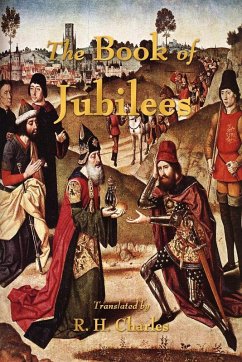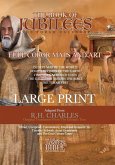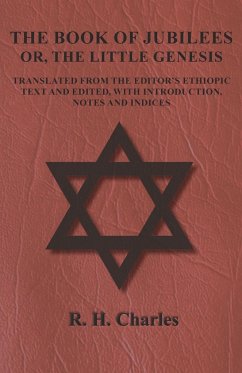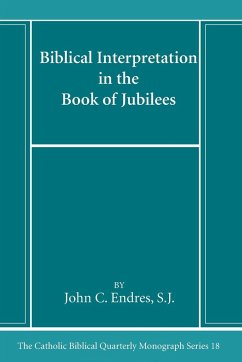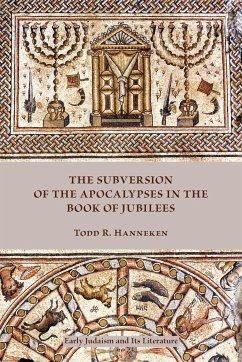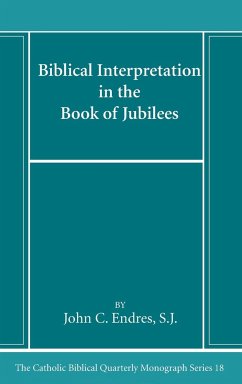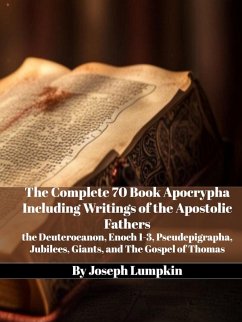The Book of Jubilees, an ancient text which details the history of the division of the Laws of Moses, is presented here complete. The text discusses the laws revealed to Moses and treats his character as a second creator of the world. Each chapter covers a range of history spanning 49 years, with Moses life story and other principal events told over a course of 2,410 years. Perhaps most importantly from a theological perspective, the book discusses the angels and how these entities formed a vital component of the Earth's creation. Enoch was taught by fallen angels; through them, he discovered writing and history. We also hear that early man was formed from a mating of Earthly humans and fallen angels, but that these hybrids were killed during the Great Flood.
Bitte wählen Sie Ihr Anliegen aus.
Rechnungen
Retourenschein anfordern
Bestellstatus
Storno


